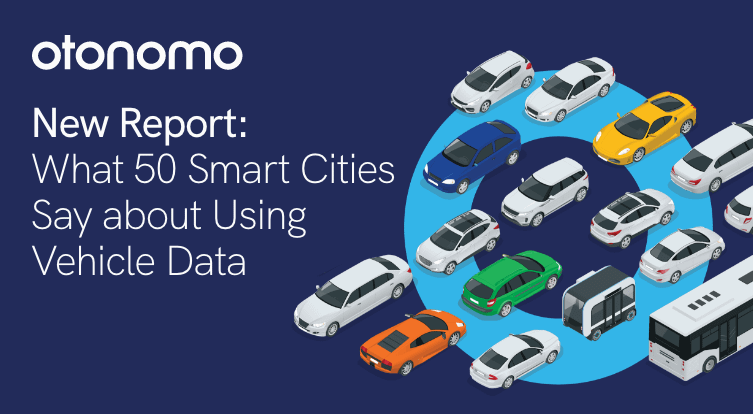It is quite simple. Smart cities depend on data and connectivity to be smart. And going forward, connected vehicles are key to unleashing innovative and impactful citizen services that can improve urban life.
Understanding what types of solutions for smart city data are implemented today, and what smart cities planners want to use data for in the future, can help all smart cities improve the services they provide.
To better understand how today’s smart city stakeholders are leveraging vehicle data, we conducted a survey of over 50 key decision makers, data science experts, and city planners with an interest in mobility. We asked them how they currently gather and use vehicle data to improve the services they offer their citizens and what challenges are standing in the way of efficient, streamlined data collection and usage.
All smart cities experts agree data is the key
We asked C-suite executives, senior leaders in finance, compliance, procurement departments, senior transportation directors, and other decision makers for their insights and the responses were collected by independent survey firm Lead to Market.
The results were unequivocal –
- 62% of respondents are already using vehicle data to improve city management
- 70% use it for problem solving, often in real-time.
The powerful impact data is having on smart city implementation today is felt in both the US and Europe. We have only just begun to tap into this huge reservoir of information.

EV and sustainability are on everyone’s agenda
One key concern smart city movers and shakers have is a genuine interest in supporting better sustainability. Data driven decisions, backed by mobility intelligence, are already being used to support ride-sharing and carpools, and to improve access to public facilities.
64% of smart city professionals use vehicle data to reduce public congestion, offer intelligent parking around parks or museums, and support other eco-friendly initiatives.
Smart city data is also used in planning future infrastructure, replacing guesswork, assumptions, and gut feeling, as the basis for new roads development.
A key element that is crucial in the fight against climate change, is EV vehicles. Here traditional data gathering methods fail, and 78% of survey respondents find it challenging to secure reliable data on electric vehicles.
By switching to multi-layered vehicle data smart cities could accurately ascertain data on EV traffic and usage, plan infrastructure such as charging stations and reduce carbon emissions. It is interesting to note that EV data can be used to calculate the required carbon offset and thus contribute to programs focusing on reducing carbon emissions.
The deployment of charging stations is critical, as they present a high upfront cost, require collaboration between the private sector, local government, and utility companies, and are difficult to change once a decision is made. Using smart mobility data gathered from EV vehicles can be processed into actionable insights on where to deploy charging stations most effectively, as well as what type. This is important in order to reduce range anxiety and increase EV adoption rates.

Data in the service of tactical urban solutions
Using data can help cities cope with special circumstances such as special events. According to the survey, more than two-thirds of urbanists use data for planning, with 68% of respondents saying they rely on vehicle data in planning for and managing mass events. Vehicle data is used mainly for organizing parking, reducing congestion with smart arrival and departure times, intelligent routing to and from the location, and more.
Interestingly, smart city data is also used to communicate directly with citizens. With 50% of city professionals engaged in designing mobile transportation apps aimed at improving transportation access. Additionally, vehicle data-driven applications are used to provide solutions for tourists, guests, and visitors. These applications are meant to add transparency to public services and offer a means of communication for the municipalities and citizens alike.
Want to learn more about how smart cities use data to improve urban life? Download the survey results.
You can also benchmark your smart city by answering the survey questions, here.









